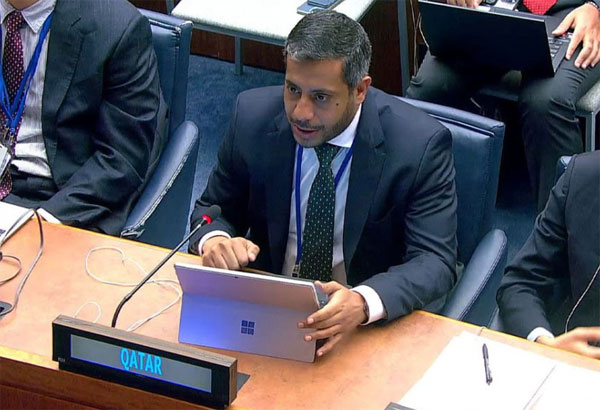Daijiworld Media Network - New York/Doha
New York/Doha, Oct 18: Qatar has reiterated its longstanding demand for a nuclear-weapons-free zone in the Middle East, calling the move more urgent than ever in the face of escalating regional and global security threats. Speaking at the 80th United Nations General Assembly in New York, Khalid Ibrahim Al Mansouri, a member of Qatar’s delegation, warned that the continued proliferation and modernization of nuclear arsenals pose grave risks to humanity.
Delivering a statement during the UN First Committee’s discussions on nuclear weapons, Al Mansouri expressed deep concern over the increasing incorporation of nuclear capabilities into military strategies and doctrines worldwide. He noted that such developments not only heighten the threat of accidents or attacks but also fuel global instability and undermine peace efforts.

Qatar urged the international community to recommit to nuclear disarmament and emphasized that the Treaty on the Prohibition of Nuclear Weapons reflects growing global awareness about the existential danger posed by nuclear proliferation. The Gulf nation also stressed the link between nuclear weapons and the worsening of armed conflicts and humanitarian crises, especially in already volatile regions.
Al Mansouri underscored the importance of regional cooperation and trust-building, advocating for peaceful conflict resolution and the protection of civilians and infrastructure. He reaffirmed Qatar's backing for the upcoming sixth UN conference on establishing a Middle East zone free of nuclear and other weapons of mass destruction, scheduled for November.
Looking ahead to the 2026 Review Conference of the Treaty on the Non-Proliferation of Nuclear Weapons (NPT), Qatar voiced strong support for Vietnam’s presidency of the event and called for meaningful outcomes. The country also highlighted the need for strict adherence to international safeguards, responsible use of peaceful nuclear energy, and measures to prevent the cross-border movement of radioactive materials under the oversight of the International Atomic Energy Agency (IAEA).